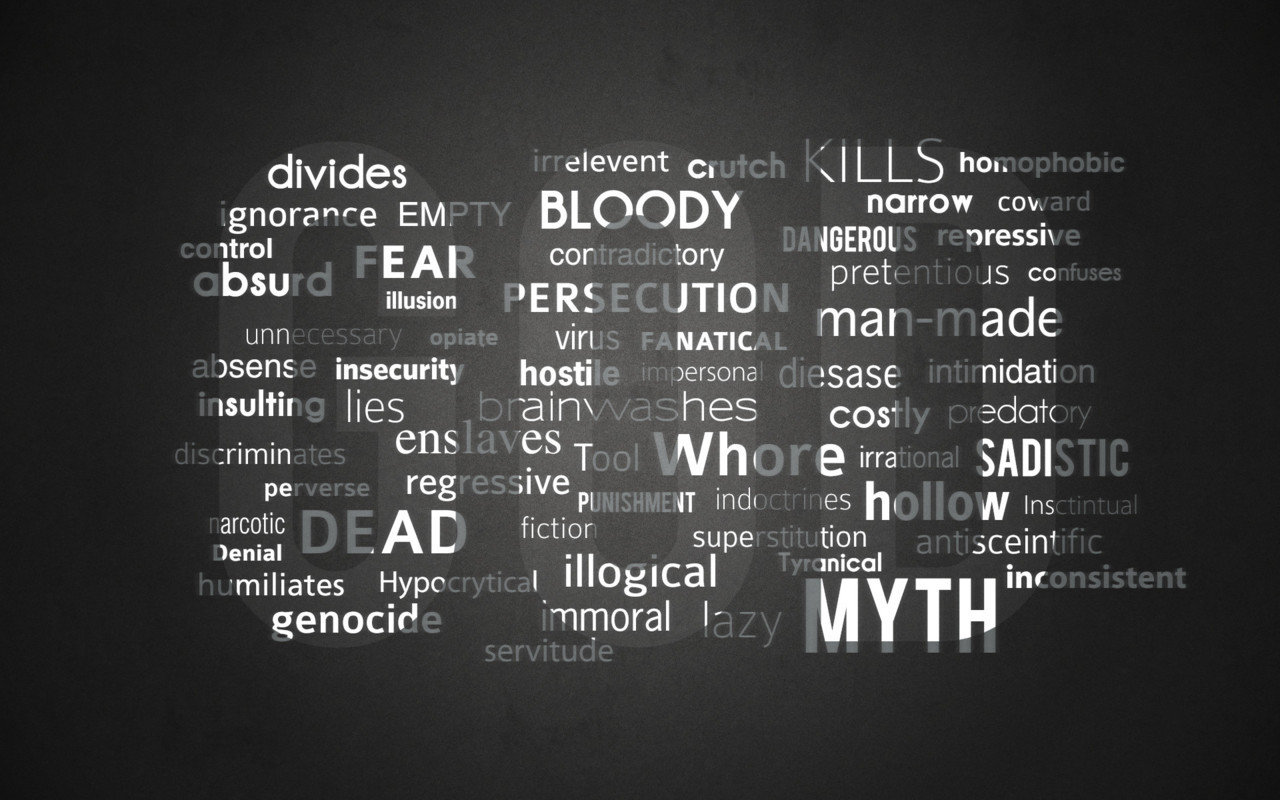?

Arguments Against Existence of

CONTENTS
- The Paradox of Stone
- The argument from God’s inability to sin
- The argument from concept possession
- The logical argument from evil
- The evidential argument from evil
- The argument from divine hiddenness
The paradox of the stone

God’s inability to sin
If God is omnibenevolent,
he should be unable to perform morally wrong or sinful actions, such as brutally torturing hundreds of innocent children.
Still, if God is omnipotent, he must be able to perform such an action, after all even we humans can do so in principle. Therefore, God cannot be omnipotent and omnibenevolent at the same time.
The argument from concept possession
If God is omniscient, then he must understand fully what fear and frustration are. However, an omnipotent God cannot grasp the concepts of fear and frustration fully because he, who is omnipotent, cannot experience what it is like to suffer fear and frustration. Therefore, God cannot be omnipotent and omniscient at the same time.
Evil

Logical argument from evil
It seems obvious that, as a matter of contingent fact, there is evil in the actual world. However, if God is omniscient, omnipotent, and omnibenevolent, there must be no evil. If God is omniscient, then he must know that there is evil in the actual world. If God is omnipotent, then he must be able to eliminate evil from the actual world. If he is omnibenevolent, then he must be willing to eliminate evil from the actual world.
Evidential argument from evil
Perhaps it is logically possible that evil and God coexist. However, the existence of evil still suggests that we are justified in believing that God does not exist. Consider a parallel example. Suppose that a prime suspect for murder has been arrested. There is overwhelming evidence that he is guilty. Here we are justified in believing that he is guilty, even if it might be logically possible that he did not commit the crime (e.g., it might be logically possible that an extraterrestrial that looks identical to the suspect killed the victim).
argument from divine hiddenness

If God is omniscient, omnipotent and omnibenevolent, then he must bring about a state of affairs in which his existence is manifest to everyone in the actual world. It is not the case, however, that his existence is manifest to everyone in the actual world.
Even many people who want to believe in God cannot clearly see that he exists.
Any questions

Thanks for the opportunity
Presented by Bablu Sharma
14BCS012